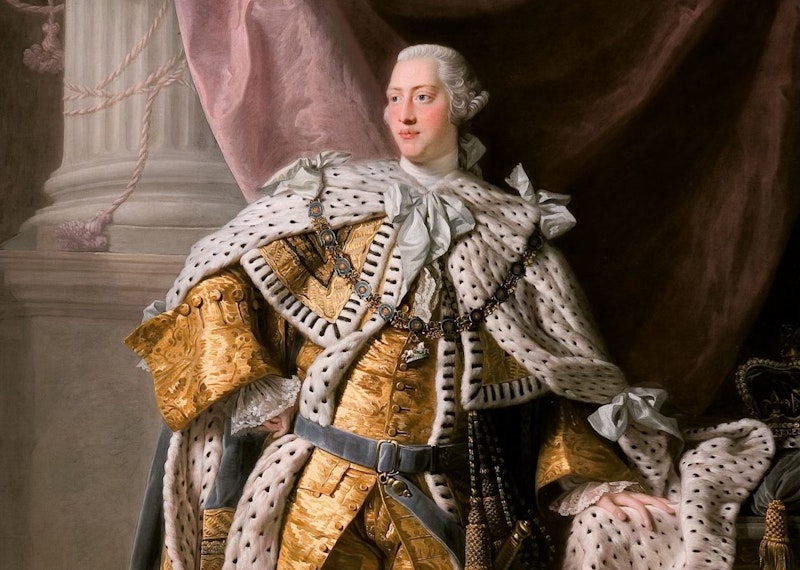When I decided to move to France I found a French teacher in Baltimore and took lessons. My neighbors, three Johns Hopkins PhD students, recommended him. He was an associate professor, a philosopher, and a very nervous person. I didn’t learn any French from him. I think it was because it was all written and I’ve learned that this meaningless for beginners. You have to talk. I learned French by going to the same bar every night for a year when I got to Paris. It was there where, thanks to red wine, I overcame my inhibitions and finally started speaking. In addition, I read a lot in French and looked up the words I didn’t know. I started with Balzac’s Le Pere Goriot. The first new word I learned was “Redingote.”
Despite the lessons not working, we had many interesting conversations. In one of these he made a remark to the effect that the French people had yet to fully realize the implications of the Revolution of 1789. This seemed like an odd thing to say since it happened 200 years before. It wasn’t until I got to Paris that I understood what he meant. This happened one day when I was standing in the metro station at Odeon and noticed a document in a built-in glass case in the metro wall. The document, surrounded by dead roaches and since removed, was a copy of the “Abolition of the Monarchy,” drawn up during the Revolution under Danton. That’s when the enormity of the Revolution hit me. I recalled two separate events: the first was reading the autobiography of a princess in which she traced her genealogy to the family of Jesus Christ; the second was when I saw the phrase “God and My Right” written on the Royal Box at the London Philharmonic Hall.
It’s hard to understand what “Divine Right” means these days. What I realized in the metro was that the French Revolution, in abolishing the monarchy, had effectively abolished God. To lay their hands on the King’s “sacred” body, to lead him to the guillotine, decapitate him and then lift his head to the assembled crowd must’ve seemed like they were walking through walls, flying, doing something that just a short time before was conceptually impossible. The change in perception was a new way of seeing themselves and the world. The day after the Abolition of the Monarchy was signed on September 21, 1792, a new Year One was declared and the months renamed, a new start. It was short-lived however and the counter-reaction led not only to going back to the old calendar but to Napoleon, the reinstitution of the monarchy, and then the counter-counter reactions of the Communes of 1848 and 1870, later May 1968 and to this day with the Yellow Vests.
In Freud’s book Totem and Taboo he talks about a similar situation. He reconstructs the story of a group of brothers who kill and eat their overpowering and over-sexed father, only to reinvent him in the immortal figure of God. His point was that it isn’t easy dealing with the guilt of killing the father figure, that it figures large in our mental economy. I see this among my own friends both male and female, who often, when dealing with “father issues” redirect them into critiques of various orders, directed against America, religion, men in general, all white people other than themselves, etc. Transference is the technical word.
There’s a gap between our good intentions, ideals, and what we’re capable of doing. It isn’t reserved for revolutionaries, for it’s also true among the religiously devout. I’ve often heard the critique that someone isn’t “really” Christian because he or she isn’t wearing sackcloth and living in poverty. Jesus says it himself when asked how anyone, when considering the almost super-human renouncement it requires, can be a Christian. He replies, “With man this is impossible, but with God all things are possible.” The same is true with all the other religions; there’s a distance between the ideal of belief and the reality of practice. Look at the history of the Jews. Yahweh is constantly telling them to get it right or suffer the wrath of his upraised hand. That’s what an ideal is, something we approach but can never fully attain. And the same is true outside of religion. Often, artists describe a world of beauty, brotherhood and humanity while they lead selfish and egotistical lives.
Ours is an ongoing struggle. And there are those who ask if pursuing the ideal of our beliefs is ultimately of any value. Nietzsche said, “Convictions are more dangerous enemies of truth than lies.”

